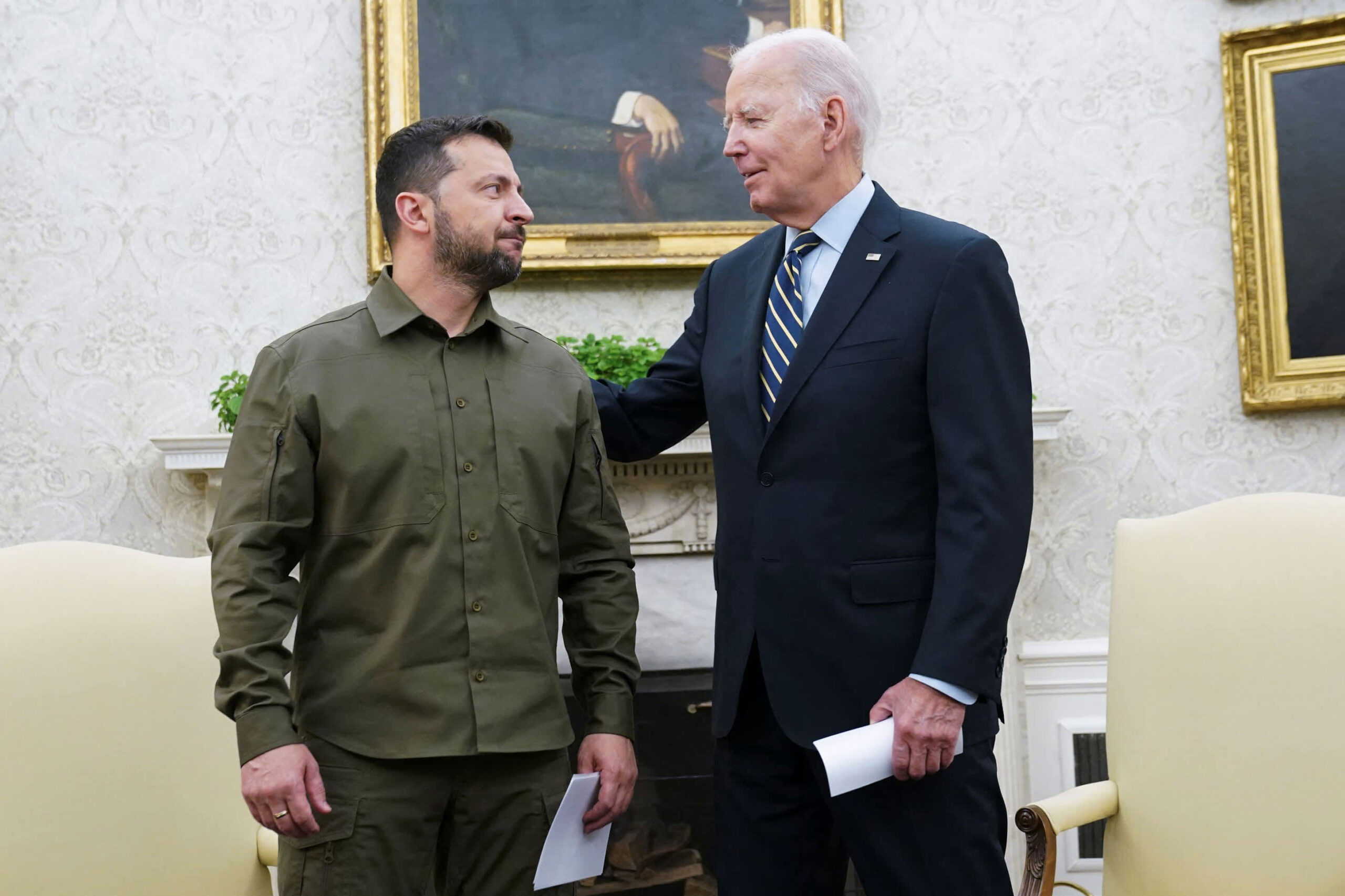The United States said Thursday it and other G7 members will provide Kyiv with a loan of up to $50 billion that will be paid back to Western allies using interest income from Russian assets frozen in Western financial institutions.
The announcement came as U.S. President Joe Biden meets with leaders of the Group of Seven wealthy democracies Thursday at the luxury resort of Borgo Egnazia in Puglia, Italy, on the first day of their summit.
Biden has been pushing G7 leaders to agree to his plan for Western allies to provide funds up front to Ukraine and to be paid back using interest income from the $280 billion in immobilized Russian assets.
The frozen funds are expected to generate an interest income of $3 billion a year or more. The $50 billion loan will be paid back with the interest income for 10 years or more or until Russia pays reparation.
The European Union in May had agreed on a less aggressive plan, which would provide Ukraine with the interest income as it is generated annually.
Other G7 countries are expected to declare how much they’re willing to provide to Ukraine. The U.S. will not be the only lender but part of a “lending syndicate” with other G7 members. However, a senior administration official told reporters Thursday that the U.S. is willing to front the full $50 billion if needed. The money can be made available “this calendar year” depending on how quickly Ukraine will be able to absorb it.
“USAID has loan authority already established from Congress,” the official told VOA during the briefing for reporters. “There’s not a set schedule that is required or a capped amount, but we have decided that we can provide up to $50 billion.”
Under EU rules, the sanctions regime that freezes the funds must be unanimously renewed every six months by the bloc’s 27 member states. The official said that Germany, France, Italy, the European Commission and the president of the European Council have “committed” to keep the loan immobilized and will seek approval from the full membership of the EU.
However, other requirements need to be worked out, including adoption by the EU as well as contracts between lenders, Ukraine and any intermediaries, the official said.
In April, Biden signed legislation to seize the roughly $5 billion in Russian assets that had been frozen in U.S. financial institutions. The bulk of the frozen money, $190 billion, is in Belgium, and much of the rest is in France and Germany.
Much is still unknown about the plan. However, the U.S. goal is to have a leaders’ declaration at the end of the summit that lays out a “framework that is not generic, that is quite specific in terms of what it would entail,” White House national security adviser Jake Sullivan told VOA Wednesday. Core operational details still need to be worked out, he said.
Attending the summit for the second consecutive year, Ukrainian President Volodymyr Zelenskyy is advocating for the deal to pass. He and Biden are scheduled to sign a separate bilateral security agreement outlining U.S. support for Ukraine and speak in a joint press conference Thursday evening. VOA


